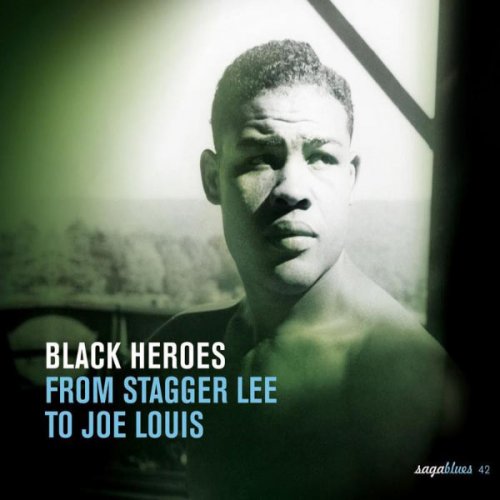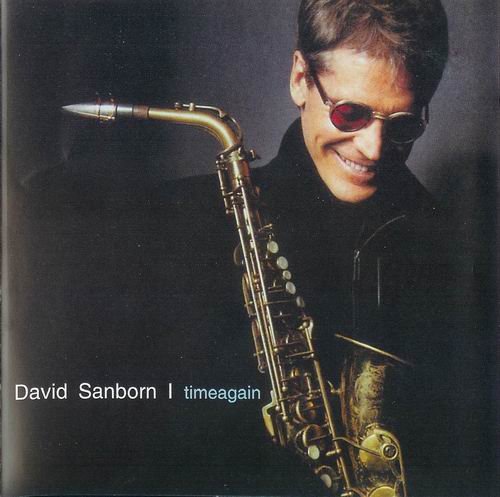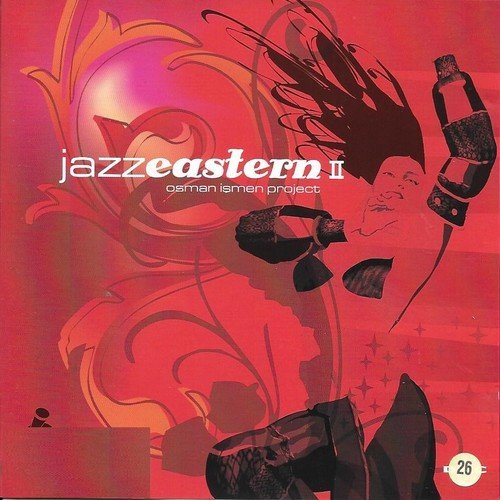Various - Black Heroes - From Stagger Lee To Joe Louis (2007)

Artist: Various
Title: Black Heroes - From Stagger Lee To Joe Louis
Year Of Release: 2007
Label: Saga
Genre: Blues
Quality: 16-44100 FLAC +booklet
Total Time: 71 min
Total Size: 177 mb
WebSite: Album Preview
Black Heroes: From Stagger Lee to Joe Louis Review by arwulf arwulfTitle: Black Heroes - From Stagger Lee To Joe Louis
Year Of Release: 2007
Label: Saga
Genre: Blues
Quality: 16-44100 FLAC +booklet
Total Time: 71 min
Total Size: 177 mb
WebSite: Album Preview
With a few exceptions, the recordings on the Saga Blues compilation Black Heroes: From Stagger Lee to Joe Louis are well-chosen, moving, and even inspiring. Most of the individuals saluted in these songs were either manual laborers or those who rebelled against authority; from pimps and cop killers to pugilists and philanthropes. The subject of many popular folk, blues, and rock & roll recordings, Stack O'Lee (also known as Stagger Lee) was a real person who was born in 1865, achieved notoriety by shooting his friend in a dispute over a hat in 1895, and died of tuberculosis in prison in 1912. There's an entire book about "Stack Lee" Shelton and the murder of Billy Lyons: Stagolee Shot Billy by Cecil Brown (2003 Harvard University Press). It is an extraordinarily well-researched and intelligently written study, packed with historical details and insightful commentary. Most people who hear the song have little or no context for its background; Lee Shelton's reputation as a sharply dressed pimp (referred to even back then as a "mac" from the French term "macineau" ) places him and the entire discourse solidly within the root strata of modern and postmodern African American culture.
John Henry was the archetypal working man of color, and his song is one of the cornerstones of the folk-blues tradition. He is variously believed to have lived and worked in Virginia, West Virginia, or Alabama. Sometimes confused or conflated with John Henry, John Hardy was a West Virginian railroad hand who lost his temper during a game of dice, slew his opponent, and was sent to the gallows in 1894. The folk song in his honor which first showed up on records in the mid-'20s underwent its most memorable treatment when Leadbelly sang it while playing a button accordion in 1943; it was modified by Woody Guthrie into "Tom Joad," a deeply moving musical condensation of John Steinbeck's Grapes of Wrath. In the liner notes of Papa Charlie Jackson's complete recorded works as reissued by Document, musicologist Chris Smith describes "Long Gone Lost John" as the story of a "Kentucky trickster." The song, credited to W.C. Handy, would later become "He's Long Gone from Bowling Green." "Monkey and the Baboon," as sung by Barbecue Bob, is a classic example of a traditional African American folk yarn in which animals take on the personalities of quarrelsome humans.
The first person to sing about Tennessee locomotive engineer John Luther "Casey" Jones was his friend Wallace Saunders, an African American who worked as a wiper for the Illinois Central Railroad. The hero of the song is invoked (as "Kassie Jones") by Furry Lewis who virtually climbs inside of the legend to describe the step by step progress of a railway worker's day while introducing all kinds of additional observations about life as he knew it. Depending upon who was telling his story, Joe Turner is remembered as a benevolent humanitarian or a malicious man-hunter who sent innocents to prison. Big Bill Broonzy's explanation is particularly convincing. "Duncan and Brady" is based upon the shooting of a corrupt white policeman in East St. Louis during the 1890s. Regardless of who actually fired the gun, an African American singer named Harry Duncan was charged, convicted, and executed in retaliation for the death of the cop. In 1921, Frank Dupree killed a policeman while trying to rob a jewelry store to get a diamond for his girlfriend. His flight took him through Memphis to Chicago where he ended up slaying another cop in a big shootout with several officers. Tried in Atlanta, he was executed there in September 1922. In 1893, a worker from a turpentine camp in Alabama named Morris Slater was confronted by an abusive white policeman who attempted to disarm him. During the skirmish Slater's gun went off, killing the officer. Slater hopped a freight train and took to stealing food and other goods from locomotives; as he shared and sold the booty to impoverished African American families throughout the region, he became known as Railroad Bill. Although he was gunned down in 1896, many refused to believe that Railroad Bill had died and he eventually achieved the status of a supernatural trickster.
The inclusion of a reference to white gunslinger Jesse James is probably this collection's weakest link. Not only was James an avowed white supremacist, but Jazz Gillum's "Just Like Jesse James" is nothing more than another whiney misogynistic male crisis song and only invokes James briefly at the finish as Gillum brags about his gun and threatens to murder the woman who is unfortunate enough to have tangled with him. The Black Heroes collection contains several tributes to famous pugilists. Leadbelly' tale of Jack Johnson being refused passage on the Titanic is probably apocryphal, but it makes for a great narrative which resonates powerfully when considered in the light of Johnson's career and the racially motivated campaign of harassment, trumped-up charges, and imprisonment that interfered with his livelihood and sullied his reputation. In later years, Johnson would be seriously considered for a posthumous presidential pardon. Several strongly presented tributes to world heavyweight champion and social activist Joe Louis are in this set, including those by Alberta Hunter and Joe Pullum (for a weirder example, look up the "Joe Louis Chant" by Richard M. Jones). Memphis Minnie's "Sylvester and His Mule" is a simple tale describing a struggling black farmer's fear of homelessness and the placing of a direct call to the White House where, in the name of Franklin Delano Roosevelt, he is told to rest his mind and get back to work. This respect for progressive authority is hammered home with fiery insistence by the Reverend J.M. Gates in the sermon "President Roosevelt Is Everybody's Friend," a potent finish to this thought-provoking anthology.
Tracklist:
1.01 - Mississippi John Hurt - Stack O'Lee Blues (3:00)
1.02 - Willie Walker - Dupree Blues (3:30)
1.03 - Leadbelly - John Hardy (3:19)
1.04 - Leadbelly - Duncan And Brady (4:07)
1.05 - Archibald - Stack-A-Lee - Parts 1&2 (4:35)
1.06 - Papa Charlie Jackson - Long Gone Lost John (2:44)
1.07 - Barbecue Bob - Monkey And The Baboon (3:07)
1.08 - Will Bennett - Railroad Bill (2:58)
1.09 - Big Bill Broonzy - Blues In 1890 (Joe Turner Blues) (3:39)
1.10 - Jazz Gillum And His Jazz Boys - Just Like Jesse James (2:50)
1.11 - Benny Carter And His All Star Orchestra - Joe Turner Blues (2:55)
1.12 - Big Bill Broonzy - John Henry (3:21)
1.13 - The Two Poor Boys - John Henry Blues (2:51)
1.14 - Furry Lewis - Kasie Jones (3:12)
1.15 - Jesse James - Southern Casey Jones (3:02)
1.16 - Leadbelly - The Titanic (5:14)
1.17 - Joe Pullum - Joe Louis Is The Man (3:07)
1.18 - Memphis Minnie - He's In The Ring (Doing That Same Old Thing) (2:49)
1.19 - Alberta Hunter - He's Got A Punch Like Joe Louis (2:30)
1.20 - Brownie McGhee - Robbie-Doby Boogie (2:22)
1.21 - Memphis Minnie - Sylvester And His Mule Blues (3:07)
1.22 - Rev. J. M. Gates & His Congregation - President Roosevelt Is Everybody's Friend (3:06)



![Gregory Lewis & Ms. Raina - Organ Monk Sings (Introducing Ms. Raina) (2026) [Hi-Res] Gregory Lewis & Ms. Raina - Organ Monk Sings (Introducing Ms. Raina) (2026) [Hi-Res]](https://www.dibpic.com/uploads/posts/2026-02/1770839809_owtxytnszg5nv_600.jpg)
![AKU! - SHI 匹 死 (2026) [Hi-Res] AKU! - SHI 匹 死 (2026) [Hi-Res]](https://img.israbox.com/img/2026-02/14/jcbrzjzstl2k3pfymuh3dzwnp.jpg)

![George Wein & The Storyville Sextet - Metronome Presents Jazz at the Modern (Live / Remastered 2014) (2026) [Hi-Res] George Wein & The Storyville Sextet - Metronome Presents Jazz at the Modern (Live / Remastered 2014) (2026) [Hi-Res]](https://www.dibpic.com/uploads/posts/2026-02/1770798976_cover.jpg)
![Trio Brūme - Baignade interdite (2026) [Hi-Res] Trio Brūme - Baignade interdite (2026) [Hi-Res]](https://www.dibpic.com/uploads/posts/2026-02/1770989318_a2262940476_10.jpg)
